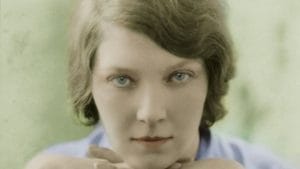19 September, 2015
A report from Ford Society Chair, Dr. Sara Haslam

‘Literature at War: H.G. Wells, Ford Madox Ford and their Contemporaries in and around the First World War’ was held on 19 September at King’s College, London. This one-day event, which attracted 40 speakers and attendees, was sponsored by the Wells and Ford Societies, as well as the Centre for Modern Literature and Culture and the Centre for Life-Writing Research at King’s. After a warm welcome from Max Saunders, Sara Haslam’s keynote on literature and caregiving at war opened the proceedings. Her lecture was an historical and psychoanalytic analysis of reading at war; focusing on Ford and Wells, she explored why and how ‘literature thrived at the point of consumption, at the point of need’ during the war. The subsequent parallel panels divided into Wells and Ford at war, with themes and approaches including gender, genre, Ford and Lewis and, the biographical detail of Ford’s experience at the front (courtesy of Simon Gibbs, the only conference attendee whose father made an appearance in Parade’s End!).
The second keynote, by Bernard Loing, was a detailed and personal reading of Mr Britling and war as ‘inner experience’, via an introduction focused on Ernst Jünger’s view of war. Mr Britling was exceptional, Loing argued, because it was ‘the first time Wells is confronted with the real’ – although he never wanted to acknowledge the autobiographical nature of the book. Contributors to the parallel panels after lunch explored Turkish literature as propaganda, Flint, Ford and utopianism, and others of Wells’ war-time publications, including Boon. The final panel was a second exploration of the after-effects of war, with contributions on Thomas MacGreevey’s poetry and ‘abstract fiction’.
The day was brought to a close with a wonderful talk by Sam Jordison, Guardian journalist and Wells and Ford enthusiast. Sam ran an online book group on The Good Soldier for the Guardian in the spring of this year. When it emerged in the course of the resultant communication that he was also writing a book on H.G. Wells, Sara Haslam invited him to present at the conference. His romp through the internet world of ‘mis-information and myth’ surrounding these writers was a brilliant combination of personal insight and internet trawling as he considered where, if anywhere, ‘truth’ is to be found. The reception after this closing event was a lively affair, and thanks are due to King’s for providing excellent refreshments. The conference dinner was held at a local Turkish restaurant.





